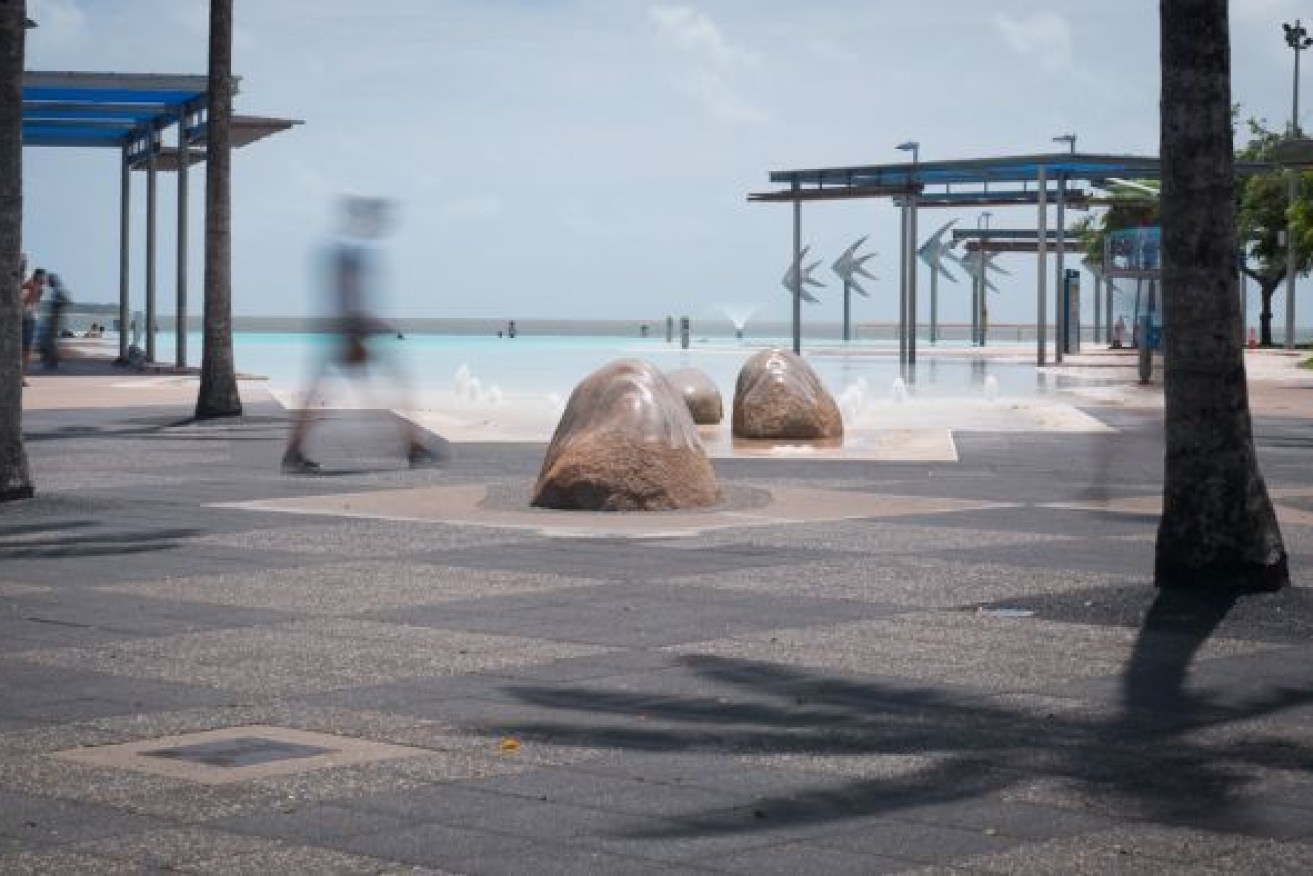From Cairns to Coolangatta, Queensland scrambles to catch up to rampant Delta
Testing is expected to help reveal the origins of a Cairns case as NSW – still in the grip of a worse outbreak than greater Brisbane – moves to protect its residents from Queensland.

Cairns has been hit hard by the travel restrictions imposed during the pandemic and now has a new case of COVID-19 to contend with. (Supplied)
Queensland Health last night issued a public health alert for contact tracing locations in Cairns, Trinity Beach and Yorkey’s Knob after a person tested positive to COVID-19.
“Tests are currently being performed to determine whether there is any infection risk to the community,” the department said in a statement, foreshadowing further information being released today.
Testing capacity was ramped up in the Cairns and Hinterland Health Service Region, as Chief Health Officer Jeannette Young called on Queenslanders to break the daily record and tally 40,000 tests.
The alert came as NSW popped the so-called border bubble, reportedly advising people in communities along the state’s far north that they would have to go into home quarantine for 14 days if they visited Queensland. Weeks earlier, Queensland resisted doing the same, despite travellers from Sydney putting communities at risk.
Yesterday, Young still did not know how an Indooroopilly State High School family came to be infected with the type of Delta strain seen two weeks earlier in two returning overseas travellers in hotel quarantine and hospital.
The outbreak was discovered at the end of last week and prompted a lockdown that has already been extended to Sunday. It has been growing more rapidly, with 13 cases reported on Monday and another 16 yesterday.
At least nine of the 16 are children, one is a teacher, while another new case is a neighbour of a family with the Delta variant in the household. Thankfully, all have so far been linked to known cases, but Young will require all new cases to have been in quarantine while infectious for the lockdown to be lifted.
As of Tuesday, 31 of the known cases in the outbreak involved people aged under 19 – including 16 aged nine or younger. The Delta variant spreads more easily among children and, even though they are not thought to be more at risk, the Queensland Children’s Hospital has been placed on stand-by.
The outbreak has spread via unvaccinated and unmasked children, and already closed Indooroopilly State High School and Ironside State School, with exposure sites at various shopping centres, sporting venues, cafes and halls.
Other cases have popped up at private schools, including Brisbane Grammar, and students in the 11 council areas subject to the lockdown are now learning remotely. Children of essential workers can still attend school but with only a skeleton staff to support them.
The Federal Government has announced plans to vaccinate more people, even through drive-through centres, and make vaccines available to younger people.
However, Queensland Health has repeatedly pointed to a shortage of the Pfizer vaccine that is preferred for people under 60.
Young had urged healthy, younger Queenslanders to hold out for Pfizer, but yesterday said the outbreak was getting to a stage where AstraZeneca would become a more attractive proposition to consider with their doctor.
With more than 4,000 people now in home quarantine, awaiting test results that will give them the all-clear, the outbreak and associated restrictions are having a broader flow-on affect – at least 400 health workers can no longer see patients, causing problems in the health system itself.







